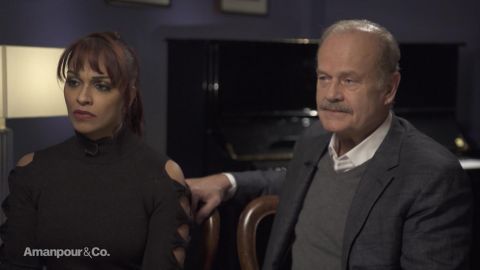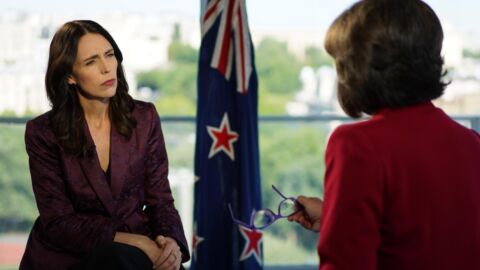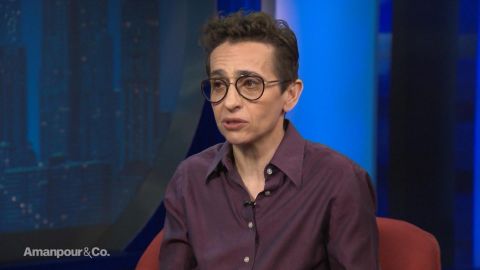Read Transcript EXPAND
JACINDA ARDERN, NEW ZEALAND PRIME MINISTER: You know, in the wake of the 15th of March, there were a number of things that we, as New Zealanders, could do to respond to what was a horrific and jarring terrorist attack on our soil. You know, we could deal with our gun laws and we have. We could look into the way that our security and intelligences are focused and reviewed, and we are.
But when it came to the way that this attack was specifically designed to be broadcast and to go viral, the response to that needed a global solution. And so, that was why we immediately got in contact with international counterparts, those who are like-minded when it comes to the notion of an open and secure internet, and use that as the basis to say there is more work to be done here when it comes to stopping the proliferation of online and violent extremism. So, that was the basis of the call.
It is really an action plan. It’s the start of something. It won’t be the beginning and end, but I hope the start of preventing this kind of activity online happening again.
CHRISTIANE AMANPOUR: So, you have said, and you wrote an op-ed about it, that you can’t do all this alone.
ARDERN: No.
AMANPOUR: The corporations have to do their part as well and obviously governments as well. Mark Zuckerberg of Facebook was here.
ARDERN: Yes.
AMANPOUR: But he’s not here for the conference. He did meet with President Macron. Have you actually spoken to him? What —
ARDERN: Yes.
AMANPOUR: Has he given you a pledge? Because this is a voluntary call.
ARDERN: It is, it is. And look, there’s good logistical reasons for this. This is an action plan that we wanted to start the work on in the immediate aftermath of the 15th of March. And here we are, you know, roughly two months later pulling together both countries and companies, and that is a big distinction from what’s happened before.
We were all around the table, setting forth the kind of areas of work the public can have a reasonable expectation where things need to change. If we had gone to a treaty level document, that generally would have excluded private companies and they would have taken a very long time. So, we are asking for cooperation, and I think it’s the least that can be offered in these circumstances.
I’ve spoken to Mark Zuckerberg directly twice now. And actually, we’ve had good ongoing engagement with Facebook. And the last time I spoke to him a matter of days ago, he did give Facebook’s support to this call to action.
AMANPOUR: And what? Because, for instance, I spoke to Eric Schmidt yesterday and he obviously is the former CEO and chairman of Google, and he was quite exorcised by the idea that any government would consider regulation or that companies should be broken up for anti-trust or other such reason. He said, you know, “Give this duty to us. We will regulate ourselves. Just give us more time, we’ll develop the tools.”
ARDERN: Yes.
AMANPOUR: Do you buy that?
ARDERN: Well, I think this is about acknowledging that actually we’ve seen to-date a proliferation of domestic regulation, and for good reason. You know, we as leaders have a duty of care and when we see harm being done and the proliferation of terrorism and violent extremism, people look to us for answers.
About This Episode EXPAND
Christiane Amanpour speaks with New Zealand Prime Minister Jacinda Ardern about her call to action on internet extremism, gun control and climate change. She also speaks with Kelsey Grammer and Danielle de Niese, who are both starring in “Man of La Mancha” on the London stage. Michel Martin speaks with Russian-American journalist Masha Gessen about Mueller, Trump and Putin.
LEARN MORE


